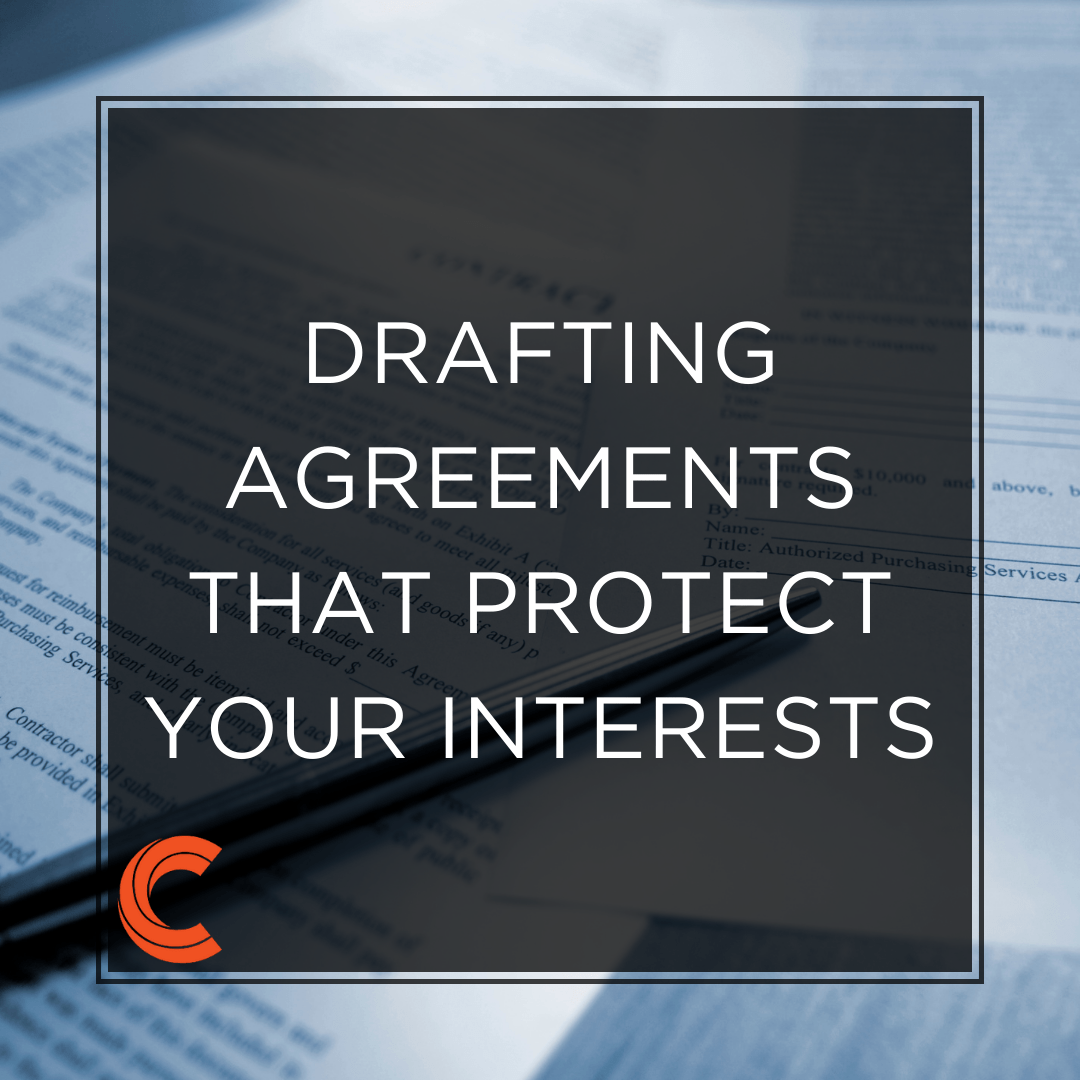Contracts are the backbone of any business transaction. Whether you’re forming partnerships, hiring employees, or selling products, well-drafted contracts are essential. They protect your interests, prevent disputes, and ensure everyone involved understands their obligations. This blog post will guide you through the basics of contract drafting, highlighting key clauses, legal requirements, and best practices. If you’re unsure about drafting contracts yourself, Carbon Law Group can provide the legal assistance you need to create clear, enforceable agreements tailored to your specific business needs.
Key Clauses Every Contract Should Include
When drafting a contract, certain clauses are essential to protect your interests. These clauses outline the rights and responsibilities of each party and provide a framework for resolving disputes. Below are the most critical clauses to include in any business agreement:
1. Identification of Parties in Drafting Agreements
The first clause should clearly identify all parties involved in the agreement. This includes their legal names and addresses. If one of the parties is a business entity, be sure to include the business’s full legal name and state of incorporation. This clarity ensures that the contract is enforceable against the correct parties.
2. Scope of Work
This section outlines the specific duties and responsibilities of each party. It should be as detailed as possible to avoid misunderstandings. Clearly defining the scope of work ensures that all parties know what is expected of them.
3. Payment Terms
Clearly state how much is to be paid, when payments are due, and how they should be made. Include any penalties for late payments and conditions under which payments can be withheld. This clause is vital for maintaining cash flow and ensuring timely payments.
4. Confidentiality in Drafting Agreements
If your agreement involves sensitive information, a confidentiality clause is crucial. This clause prevents the parties from disclosing proprietary information to third parties without consent. It protects your business’s trade secrets and other confidential data.
5. Termination Clause
The termination clause outlines the conditions under which the contract can be ended. This includes how much notice must be given and the consequences of early termination. It provides an exit strategy if things don’t go as planned.
6. Dispute Resolution
Despite everyone’s best efforts, disputes can arise. A dispute resolution clause outlines how conflicts will be resolved, whether through mediation, arbitration, or litigation. This clause can save time and money by providing a clear path to resolving disagreements.
7. Governing Law in Drafting Agreements
Every contract should include a governing law clause, which specifies the state laws that will apply to the agreement. This clause is particularly important for contracts involving parties from different states or countries. It ensures consistency in interpreting the contract’s terms.
Legal Requirements for Enforceable Contracts
A contract is only as good as its enforceability. To ensure your contract holds up in court, it must meet certain legal requirements:
1. Mutual Consent
All parties must agree to the terms of the contract. This consent must be mutual and voluntary, meaning that no party was coerced into signing the agreement. Mutual consent is the foundation of any enforceable contract.
2. Consideration in Drafting Agreements
For a contract to be valid, there must be consideration—something of value exchanged between the parties. This could be money, goods, services, or even a promise to refrain from doing something. Consideration is what distinguishes a contract from a gift.
3. Competent Parties
The parties involved in the contract must have the legal capacity to enter into an agreement. This means they must be of legal age and sound mind. Contracts involving minors or individuals who are mentally incapacitated may not be enforceable.
4. Legal Purpose
The contract’s purpose must be legal. Contracts that involve illegal activities are not enforceable. Ensure that your agreement complies with all applicable laws and regulations.
Best Practices for Drafting Agreements
Now that you know the key clauses and legal requirements, here are some best practices to keep in mind when drafting contracts:
1. Use Clear and Simple Language
Avoid legal jargon and complex sentences. The goal is for all parties to understand the terms without needing a law degree. Clear, simple language reduces the risk of misunderstandings and makes the contract easier to enforce.
2. Be Specific and Detailed
Vagueness is the enemy of enforceability. Be as specific as possible when describing duties, payment terms, and other key details. The more detailed your contract, the less room there is for disputes.
3. Review and Revise
Never rush through contract drafting. Take the time to review the document thoroughly and revise it as needed. It’s often helpful to have a second set of eyes—like a legal professional—review the contract before it’s finalized.
4. Include a Signature Block When Drafting Agreements
Every contract should include a signature block for each party. This block should include the name, title, and date for each signatory. Signatures make the contract legally binding.
The Role of Legal Counsel in Drafting Agreements
Drafting contracts can be complex, and mistakes can be costly. That’s why it’s wise to consult with legal counsel when creating agreements. A lawyer can help ensure that your contracts are clear, enforceable, and tailored to your specific business needs. Carbon Law Group has the expertise to assist you in drafting contracts that protect your interests. Whether you need help with a simple agreement or a complex multi-party contract, our team is here to guide you through the process.
Conclusion
Well-drafted contracts are essential for protecting your business interests and preventing disputes. By including key clauses, meeting legal requirements, and following best practices, you can create agreements that serve your business well. However, don’t hesitate to seek professional legal assistance when needed. Carbon Law Group is ready to help you draft contracts that protect your interests and keep your business on the right track.




